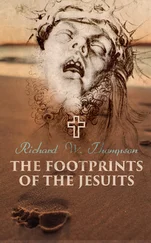* * *
The anti-Semitism Einstein found strong in Berlin in December 1919 was rampant in Munich. Pale, thin, thirty-year-old Adolf Hitler sat down that month at the single battered table in the cramped office of the German Workers Party, formerly a taproom, to draft his party’s platform. A grotesque wood carving served as inspiration. It would follow its master into history; a touring Australian academic encountered it again in 1936:
I was being shown round a famous collection of [Nazi] Party relics in Munich. The curator was a mild old man, a student of the old German academic class. 645After showing me everything, he led, almost with bated breath, to his pièce de résistance. He produced a small sculptured wooden gibbet from which was suspended a brutally realistic figure of a dangling Jew. This piece of humourless sadism, he said, decorated the table at which Hitler founded the Party, seventeen years ago.
His pale blue eyes shining, Hitler read out the twenty-five points of his party’s program the following February in the Festsaal of Munich’s Hofbräuhaus before nearly two thousand people, the largest crowd the little German Workers Party had yet attracted. “These points of ours,” he had shouted in triumph the day he finished drafting them, “are going to rival Luther’s placard on the doors of Wittenberg!” All or part of six of them applied specifically to Jews: that Jews were not countrymen “of German blood” and therefore could not be citizens; that only citizens could hold public office or publish German-language newspapers; that no more nonGermans might immigrate into the country and that all non-Germans admitted since the beginning of the Great War should be expelled. 646The twenty-five points were never officially declared the program of the Nationalsozialistiche Deutsche Arbeiterpartei, the Nazi Party, which the German Workers Party evolved to, but their power was felt nevertheless.
The Beer Hall Putsch on November 8, 1923, delivered Hitler to a comfortable, sunlit cell in Landsberg prison, where he dictated his personal and political testament to his bashful acolyte Rudolf Hess. Mein Kampf has much to say about the Jews. Across the nearly seven hundred pages of its two volumes it refers to Jewry more frequently than to any other subject except Marxism—and Hitler considered Marxism a Jewish invention and a Jewish “weapon.” 647
Jews, the future Chancellor of Germany declares in Mein Kampf, are “no lovers of water.” 648He “often grew sick to my stomach from [their] smell.” Their dress is “unclean,” their appearance “generally unheroic.” “A foreign people,” they have “definite racial characteristics”; they are “inferior being[s],” “vampires” with “poison fangs,” “yellow fist[s]” and “repulsive traits.” “The personification of the devil as the symbol of all evil assumes the living shape of the Jew.”
The attributes of the Jew are legion, Hitler goes on. The Jew is “a garbage separator, splashing his filth in the face of humanity.” Or he is a “scribbler… who poison[s] men’s souls like germ-carriers of the worst sort.” Or “the cold-hearted, shameless, and calculating director of this revolting vice traffic in the scum of the big city.” “Was there any form of filth or profligacy,” Hitler asks rhetorically, “…without at least one Jew involved in it? If you cut even cautiously into such an abscess, you found, like a maggot in a rotting body, often dazzled by the sudden light—a kike!”
The Jew is “no German.” Jews are a “race of dialectical liars”; a “people which lives only for this earth”; “the great masters of the lie”; “traitors, profiteers, usurers, and swindlers”; a “world hydra”; “a horde of rats.” “Alone in this world they would stifle in filth and offal.”
“Without any true culture,” the Jew is “a parasite in the body of other peoples,” “a sponger who like a noxious bacillus keeps spreading as soon as a favorable medium invites him.” “He lacks idealism in any form.” He is an “eternal blood-sucker” of “diabolical purposes,” “restrained by no moral scruples,” who “poisons the blood of others, but preserves his own.” He “systematically ruins women and girls”: “With satanic joy on his face, the black-haired Jewish youth lurks in wait for the unsuspecting girl whom he defiles with his blood, thus stealing her from her people.” He is “master over bastards and bastards alone” and “it was and is Jews who bring the Negroes into the Rhineland, always with the same secret thought and clear aim of ruining the hated white race by the necessarily resulting bastardization.” Syphilis is a “Jewish disease,” a “Jewification of our spiritual life and mammonization of our mating instinct [that] will sooner or later destroy our entire offspring.” The Jew “makes a mockery of natural feelings, overthrows all concepts of beauty and sublimity, of the noble and the good, and instead drags men down into the sphere of his own base nature.” “An apparition in a black caftan and black hair locks,” responsible for “spiritual pestilence worse than the Black Death of olden times,” the Jew is a “coward,” a “plunderer,” a “menace,” a “foreign element,” a “viper,” a “tyrant,” a “ferment of decomposition.”
The sun shines in the wide windows of Hitler’s cell at Landsberg. 649Boyish in lederhosen, he remembers that he was blinded by mustard gas below Ypres. 650He wrote a poem during the war, a poem out of a dream, before he took shrapnel in the thigh on the Somme, before Ypres:
I often go on bitter nights 651
To Wotan’s oak in the quiet glade
With dark powers to weave a union—
The runic letters the moon makes with its magic spell
And all who are full of impudence during the day
Are made small by the magic formula!
. . . . .
Hitler’s testament is almost finished. He dictates, his blanched face tumefying:
If at the beginning of the War and during the War twelve or fifteen thousand of these Hebrew corrupters of the people had been held under poison gas, as happened to hundreds of thousands of our very best German workers in the field, the sacrifice of millions at the front would not have been in vain. 652
* * *
The dispersion of the Jewish people from Palestine—the Diaspora—began in the sixth century B.C. when Babylon conquered the southern Palestinian kingdom of Judah, destroyed Solomon’s temple and carried a large body of Jews into captivity. 653By the beginning of the Christian era, under Roman hegemony, Jews had established communities in Egypt, in Greece, around the Mediterranean and on the shores of the Black Sea and there were Jewish slaves with the Roman legions on the Rhine. Conditions worsened again for the Jews when the Empire was Christianized in the fourth century A.D. with the conversion of the Emperor Constantine; Christianity and Judaism competed, in a Darwinian sense, for the same Holy Land and the same holy books. Under systematic persecution only a small remnant of the Jewish people remained in Judea. The fantasy of Jews as a brotherhood of evil was invented during this era when Christianity fought its missionary way to dominance. 654
In the disorder of the Dark Ages the Jews lost even their vestigial Roman citizenship. Those who sought protection won it from rulers like Charlemagne’s son Louis the Pious who knew their worth as merchants and craftsmen, but the price of protection was that they became the ruler’s property. Their rights were thus no longer inherent but chartered. Against that threatening insecurity Jews could count their gain of judicial autonomy: within their communities they were allowed to administer their own laws. In parts of Spain they had the power even of life and death.
Читать дальше












